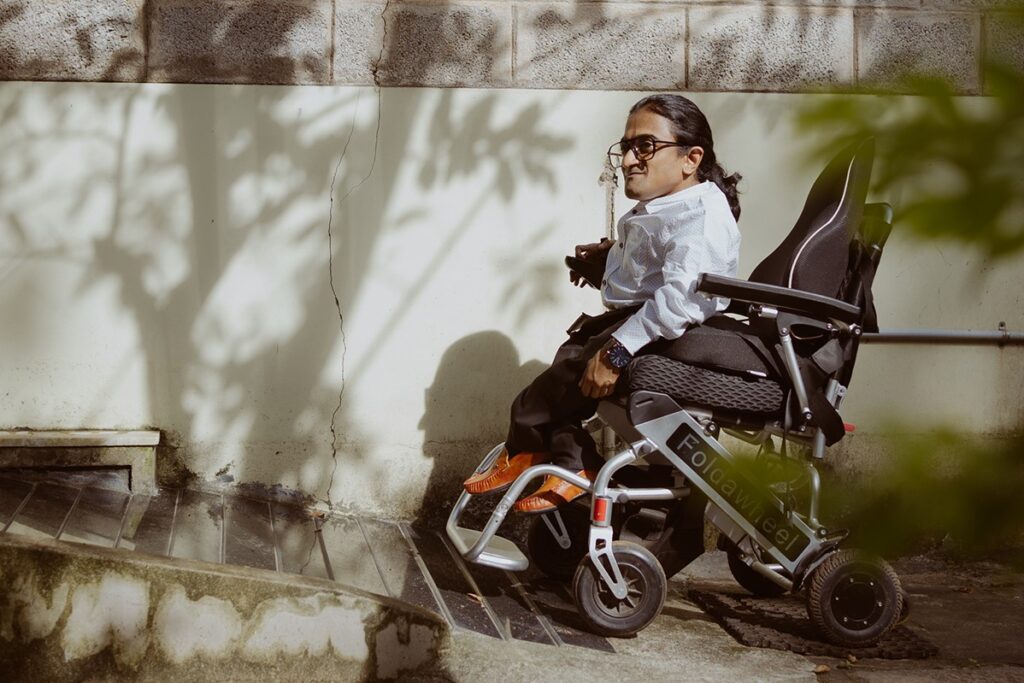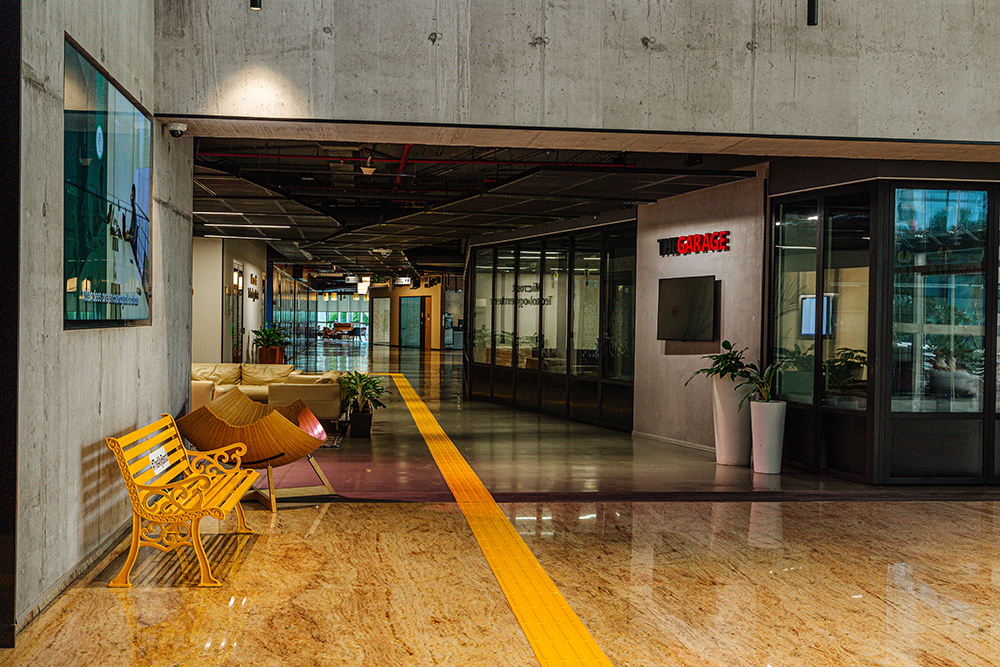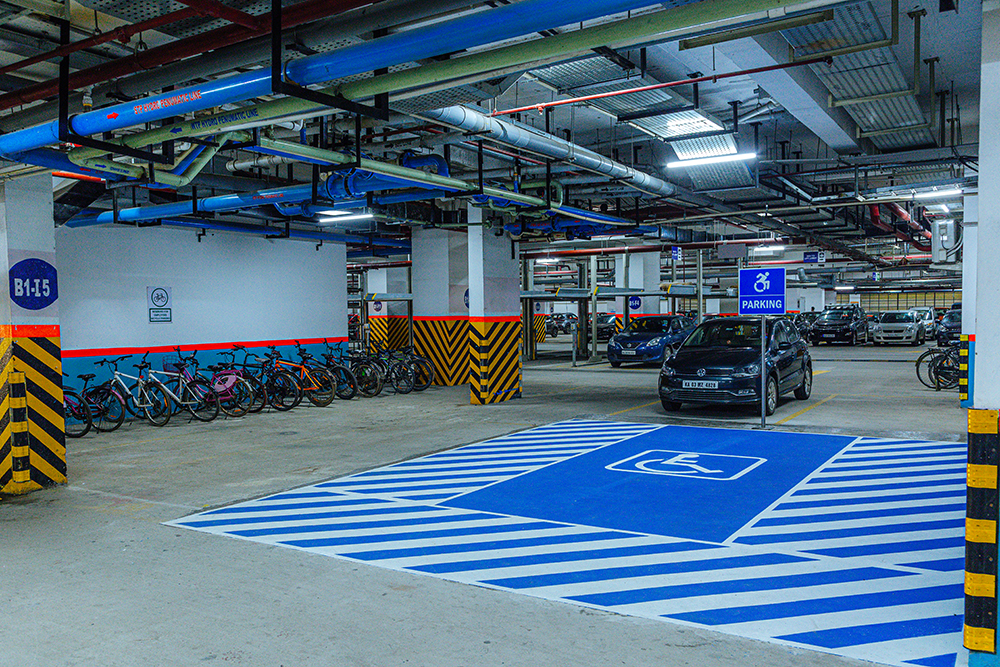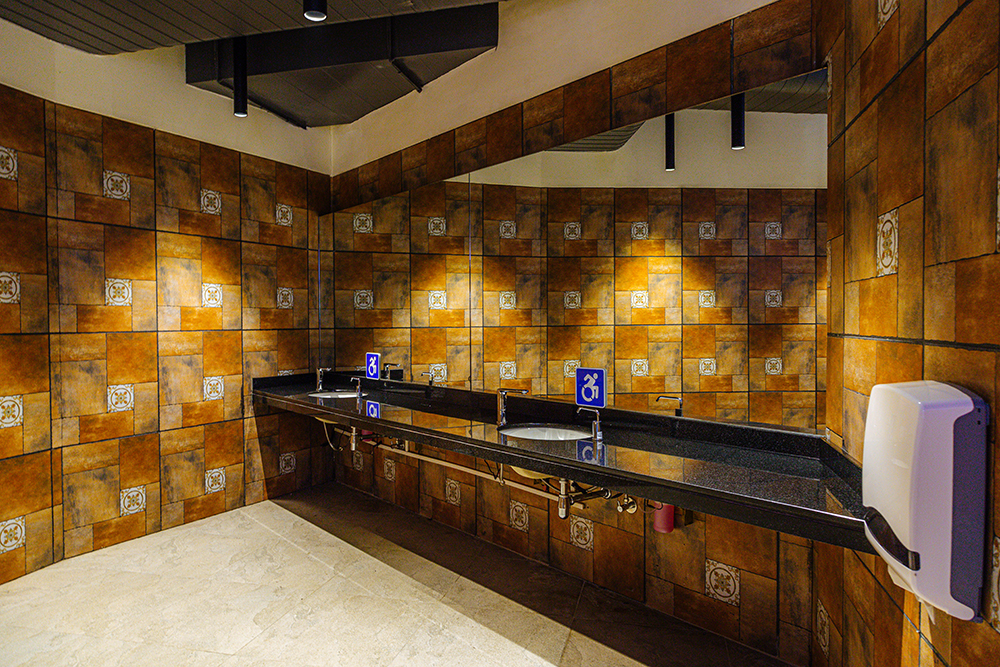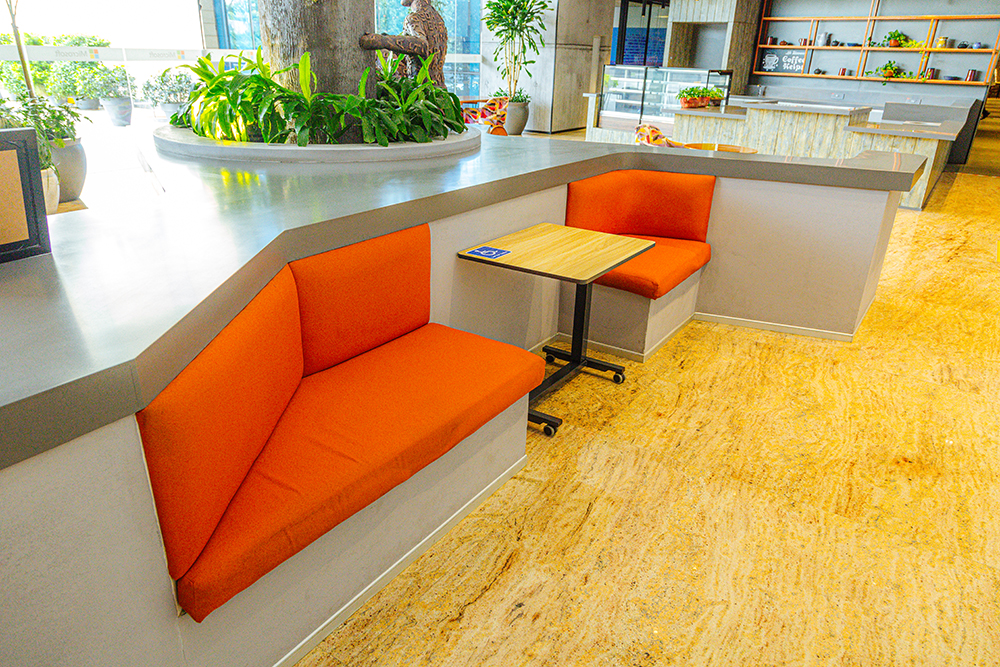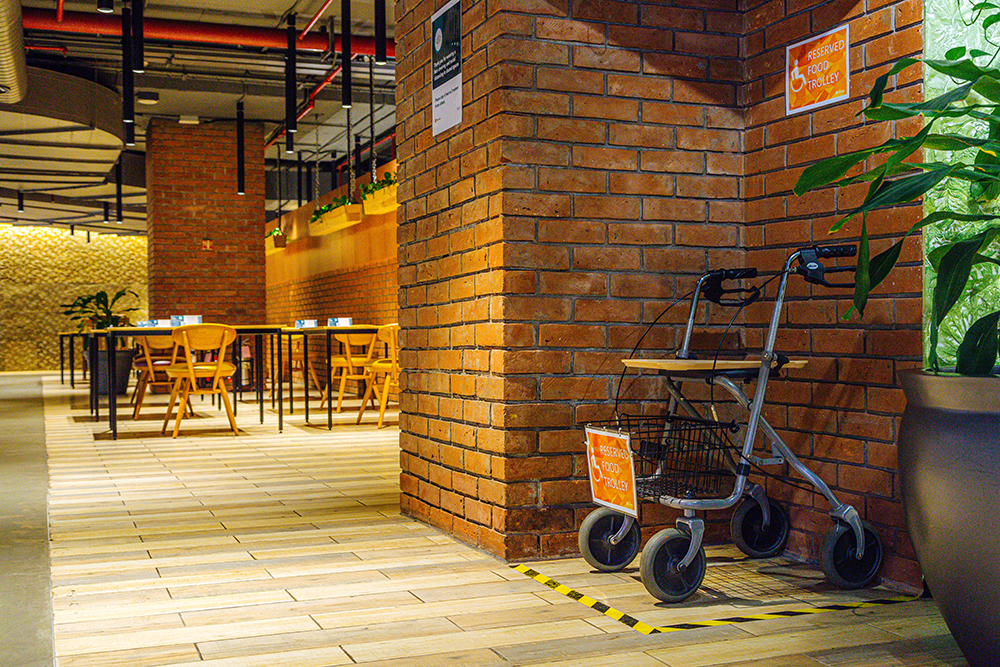After months of working from home, Jeevan B. Manoj can’t wait for an opportunity to get back into the office.
Of course, he’ll be happy to see and interact with his colleagues again. But what he’s most looking forward to is experiencing an innovative range of new features that make Microsoft’s two campuses in Bengaluru some of the world’s most accessible workplaces.
After both complexes were shut to employees in March 2020 due to the pandemic, the company’s Global Workplace Services (GWS) team saw an opportunity to create a complete accessibility makeover.
Jeevan was born with osteogenesis imperfecta, a genetic condition which results in brittle bones that are susceptible to fractures. The software engineer has been a wheelchair user for most of his life, so issues of accessibility and inclusion have been top-of-mind throughout his career.
“When people usually think about a new job, they consider the role and compensation being offered. But people in wheelchairs must first figure out if the office building has ramps and see if the restroom is accessible,” he explains.
Accessibility has long been a priority at Microsoft, and it was one of the reasons he joined the company in 2019. Right from the time he entered its Prestige Ferns Galaxy campus in Bengaluru, he could navigate every corner of the building on his own without any assistance.
“There were no heavy doors to push open, the support staff was approachable and eager to help, and all essential facilities, including the cafeteria and restroom, were accessible,” he says. “They even had taken care of my wheelchair, which had to be stowed and charged overnight after I left office for home.”
Today, Jeevan works as a program manager with the Azure Active Directory team, dealing with hundreds of developers and customers and helping them create secure technologies and experiences.
“At work, it does not matter what I look like. I am judged for what I do. So, my disability takes a backseat,” he says.
GWS maintains the real estate and facilities owned and leased by Microsoft around the world. Over the course of four months starting July this year, the GWS team retrofitted many new features to the buildings, which already had more accessibility features than mandated by local laws.
“Building accessible products and services for everyone is embedded in Microsoft’s DNA. There are over a billion people in the world who live with some disability. We will never be able to achieve our mission of empowering every individual on the planet if we leave them behind,” says Ambar Mitra, the Regional Lead, GWS India. “Accessibility benefits everyone who comes onto our campuses, whether they are a guest, customer, or new employee.”
Today both campuses have the highest grade of global workplace accessibility standards.
“Our mission to ‘empower every person and every organization on the planet to achieve more’ doesn’t just begin and end with the products we create and the services we offer. It extends to the culture of our workplace and weaving accessibility into the fabric of our company-from hiring people with disabilities, to creating inclusive policies, and building workspaces with the highest standards of accessibility,” says Ira Gupta, head of human resources, Microsoft India.
“Accessibility is both a responsibility and an opportunity. We have learned a lot on our journey to understand the full impact a culture of inclusion can have on productivity and innovation. While our journey is by no means complete, we stay deeply committed to prioritizing accessibility as a company, to truly empower people with disabilities unlock their full potential at work and in daily life.”
Some of the new additions include Braille signage and tactile indicators for employees who are blind and with low vision, retrofitting automatic taps and soap dispensers in the restrooms, and providing space under the sinks for wheelchair users to easily access them. They also added extra parking slots for people with disabilities and added height adjustable tables in the reception area for wheelchair users. While the modifications sounded simple, some of them required overhauling of the existing systems, which the team hadn’t anticipated when they started the project. For instance, when the team tried to make the sinks in the pantry accessible for wheelchair users, they realized the existing plumbing could not accommodate the change. The project turned out to be much larger than just changing the height of the sink to overhauling the plumbing system.
“There are international and local standards of accessibility that we aim to meet. Today, we are proud to say that we are among the most accessible private workplaces in India,” Mitra adds.
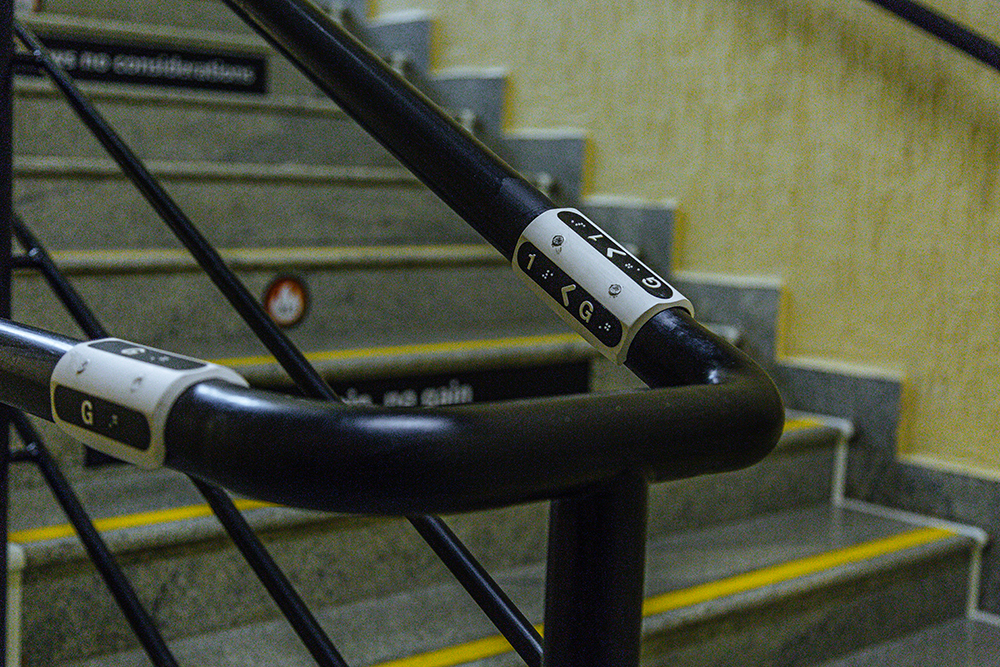
Apart from making structural additions to the campuses, Mitra’s team also utilized technology to make daily workflow accessible for persons with disabilities.
Employees, for instance, can access transport and cafeteria services through accessible apps that can be used by people who are blind or have low visibility. The exit doors now open by simply waving a hand rather than having to press a button.
But providing a seamless experience for people also requires the team to listen to people.
“We work with employees to customize the facilities in the campus for a better experience. This requires market research for available solutions and awareness of the industry’s best practices,” says Mitra.
After noticing that employees on wheelchairs were not comfortably able to carry food trays to the seating area, they modified some trolleys and added a tray on top that employees could move along with their wheelchair.
When Jeevan joined Microsoft, the team got into action to customize vehicles that ferried him between home and office. With regular cars, the driver had to lift him and settle him into the car’s seat or his wheelchair. To improve his experience, the team modified the front seats of a few cars in the company’s fleet with ergonomically designed seats that swivel outwards to make it easier for wheelchair users to get in or out of these vehicles.
“My work environment makes my disability vanish because accessibility is not an afterthought for Microsoft,” says Jeevan, who moved back to his hometown in Kerala on the southern tip of India during the lockdown. “I can’t wait to come back to office and experience the new features!”

